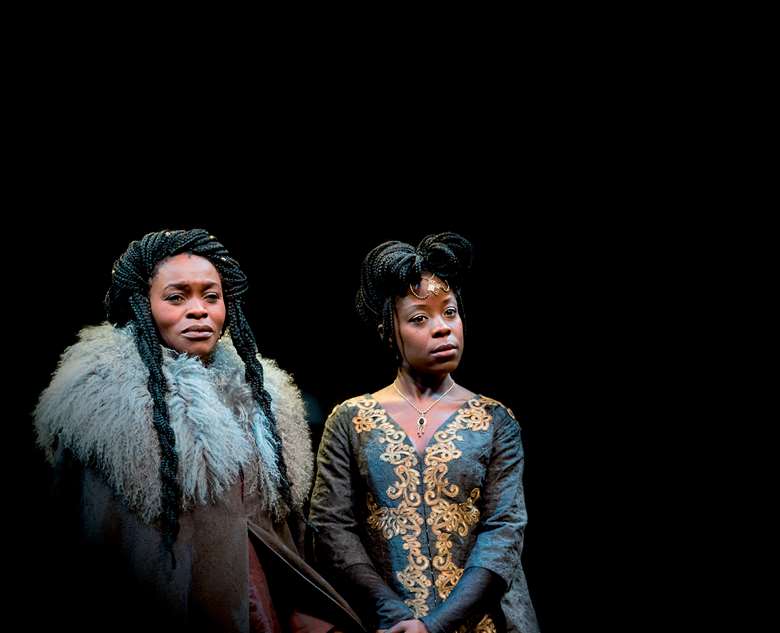Practitioner focus: Yvonne Brewster
David Johnson
Monday, March 1, 2021
In 1986, Yvonne Brewster directed Trinidadian writer and activist C. L. R. James’ play, The Black Jacobins, which tells the story of the Haitian revolution (1791–1804). Brewster had assumed her production would be a one-off project. She was in fact staging the first show by what would become Britain's longest running black theatre company to date.

Jonathan Keenan
History
Talawa Theatre Company was founded in 1985 by Brewster, Inigo Espejel, Mona Hammond and Carmen Munroe. Brewster was also Artistic Director of Talawa from its inception until 2002. The company was formed following a successful bid for funding offered by the Greater London Council's Race Equality Unit's Black Experience Arts Programme as part of a season to celebrate the life and work of C. L. R. James (1901–1989).
Brewster had identified and seized an opportunity in what she regards as a ‘happy accident’. A happy accident that, between 1986 and 2001, saw Brewster produce 29 productions in a range of genres, including African, American, Caribbean and British classical works. By producing performances that featured voices from four distinct genres and cultures, Brewster shone a spotlight on the range and complexity of language within the black British community and, also, illustrated her awareness of the link between language and multicultural identity.
Additionally, this body of work highlighted the breadth of performance styles that Brewster legitimately claimed under the black theatre umbrella as she used her own perspective to put black British theatre practitioners and black British identity centre stage.
Legacy
Brewster's fearless work allowed black audiences in Britain to see aspects of their lives in performance. Their culture was visible, their language was audible, and they were able to witness themselves from the inside out. Others were also able to see these things, and from a black perspective. Brewster's work was instrumental in helping to define black British history, culture and language to both itself and the wider mainstream.
The Brewster era at Talawa marks the beginning of the company's legacy of contemporary British theatre generally, and black British theatre specifically. It also set the stage for the company's continued development under the ensuing artistic directors and ensured that black British theatre companies could no longer be seen as a novelty or out of place on the British stage.
Brewster's many accolades include an OBE for her contribution to British theatre, and the company she co-founded has produced 89 productions to date. Talawa's multicultural work has unquestionably earned its place in Britain's contemporary theatrical mainstream.
Practical exercises for developing multicultural performance in drama
The Wedding
- Class discussion: students explain wedding rituals and ceremonies from their varying cultural backgrounds. In smaller groups, students outline the elements of a wedding day within their cultures. Discussion may include: the bride's arrival in white (UK), the arrival of the groom on an elephant (India), cutting the cake and jumping the broom (Africa).
- Group work: students create a series of five frozen images to highlight five significant events in their version of a wedding day. This can be from one culture or incorporate a range of cultures. The teacher claps five times. Following each clap, the image changes to show the day's five events.
- Group work: teacher claps one group at a time through its five images. At any moment, the teacher says, ‘act’. At this point the image that is being held is brought to life by students in spontaneous improvisation.
The Funeral
- Class discussion: students explain funeral rituals/ceremonies from their varying cultural backgrounds, e.g. the Caribbean Nine-Nights. This is an extended wake where friends and relatives visit the deceased's home and share condolences, memories, food and singing.
- Group work: students prepare four images and a three-minute performance of the funeral events. Students then present their work in their prepared sequence, i.e. two images, plus performance, plus two images, or a performance plus four images etc.
Traditions
- Pair work: students prepare lists of global celebratory traditions, e.g. 18th or 21st birthdays (UK), a young woman's 15th birthday (Central/Latin America), breaking a piñata (Mexico), peeling an orange in one go for the gift of new clothes (Caribbean), Making New Year's resolutions (UK), eating grapes on the 12 chimes of New Year (Mexico/Spain), Halloween (UK/USA) etc.
- Group work: choose one tradition for performance. Students should perform in their home language/accent. Characters may speak in differing languages/accents.
- Class discussion: what did the students show about their culture and learn about others?
Research
Visit Talawa's website and list how many productions fall into the following genres:
- African
- American
- Black British
- Caribbean
- English classical
David Johnson's book, Talawa Theatre Company: A Theatrical History and the Brewster Era, is published by Methuen Drama.

